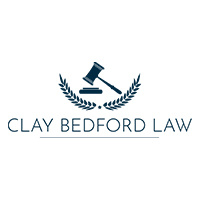 Soulsbyville Misdemeanor Lawyers, California
Soulsbyville Misdemeanor Lawyers, California
Not enough matches for Soulsbyville Misdemeanor lawyer.
Below are all Soulsbyville Criminal lawyers.
Sponsored Lawyers
1-3 of 3 matches
Criminal, DUI-DWI, Misdemeanor, Felony, Traffic
I am an attorney licensed to practice law in the State of California. My practice is limited to criminal defense and juvenile cases. The criminal cases I am accepting include everything from trespass to driving under the influence to murder. I have tried cases ranging from trespass to murder, including a death penalty case. I have lost track of the number of trials I have done, but the number is in the hundreds. The juvenile cases I accept include delinquency cases (representing minors charged with crimes) and dependency cases (usually representing parents who are charged with neglecting their children (often due to drug abuse) where the county has taken the children away from the parents and may be trying to terminate the parent's parental rights so the children can be placed for adoption.
(more)




